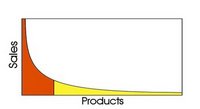Penis extensions
There are some men in the world who are deeply disturbed. They have inferiority complex, or they are impotents or have other kind of problems that seriously affect their self-esteem. As a result they go out of their way to seem bigger, better and more important. They rely on external things when it comes to their self-worth. These things are called penis extensions.
Some have to drive a big ass car, some have to yell at their wife, children and employees to make themselves feel better and get ego satisfaction. Two examples that happened to me in the last weeks in my business meetings:
Case A.
I go meet this manager of some company. Secretary leads me to his room and I find it to be a quite a large room. In the middle there is a huge rectangular table. The manager sits in one end of the table, I am being seated in the other end. The distance between us is perhaps 5 meters. He smokes while talking to me.
Case B.
Another company, another manager. He sits on a throne (its golden and any emperor would feel proud sitting there). He starts telling me about himself. How many degrees from which US universities (3 undergraduate, 2 masters, 1 PhD), where he has worked for how many years and how successful he has been. He tells me whom he knows and what connections he has. He talks about his relations with local royal families (he is not a local himself) and shows me an invitation sent by one of the sheikhs. His rant lasts easily over 5 minutes.
Seriously, get a life. Figure yourself out. Penis extensions don't work. They make you look insecure and pathetic. I fear for people who have to work under a person with a need to compensate something. Strive for inner confidence and internal self-worth instead.


